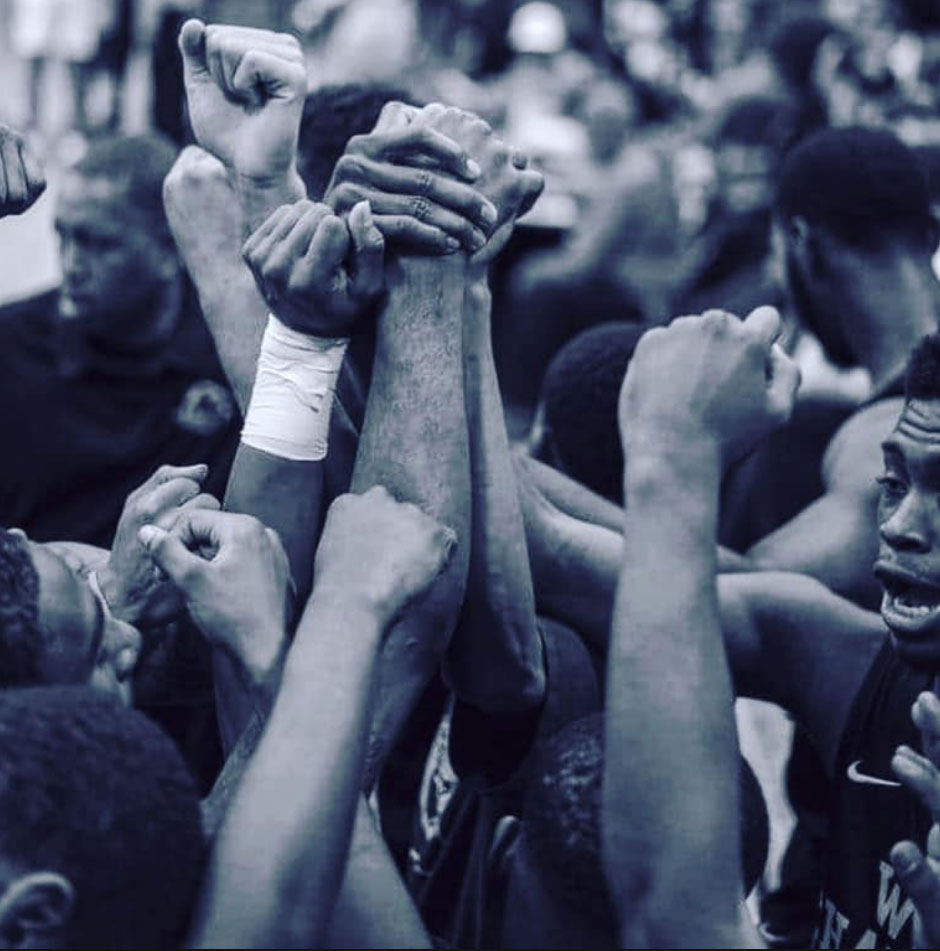Lion Pride and the work of race

By Pamela Grundy
Charlotte Observer, 6 March 2019
“West Charlotte loses home court advantage,” the Observer headline read. “Is it about race or too few seats?
The headline addressed controversy over the state high school association’s decision to move a basketball playoff game from West Charlotte’s gynmasium to the larger one at Vance High, depriving West Charlotte’s team of the home-court advantage it had earned with its regular-season record.
But the question – and too much of the discussion – missed the mark. It is precisely because West Charlotte is a high-poverty, predominantly African American school that its gym was considered too small to host a playoff game against Ardrey Kell, a high-wealth, predominantly white, much larger school.
This situation once again underscores the burdens that this community places on its most disadvantaged young people. It also speaks to history.
In the 1970s, Charlotte made a major effort to address the racial inequality caused by centuries of white supremacy, instituting an extensive busing system that made Charlotte-Mecklenburg the most desegregated school system in the nation. While busing held its own inequities, it made educational opportunities more equal than they had ever been, and won the city national acclaim.
That effort, however, did not extend to the crucial realm of housing. Even as West Charlotte High became a national model of successful integration, the historically black neighborhoods around the school were fragmented by urban renewal and highway construction. Funds for new developments and civic improvements were focused almost exclusively on the rapidly growing suburbs – places where an longstanding legacy of housing and loan discrimination made it difficult for most African American families to purchase homes.
When a new lawsuit ended busing, schools diverged as well.
In 2008, shortly after busing ended, West Charlotte had 1,980 students. Newly built Ardrey Kell had 1,852. That parity did not exist for long. The area around Ardrey Kell built up – in part because the families who could afford to buy new, often-pricy homes wanted to send their children to the thriving, well-off school. West Charlotte, whose aging neighborhoods housed a poorer and more transient population, and whose students thus faced far greater challenges, struggled to keep families.
By 2016, Ardrey Kell enrolled 2,996 students. West Charlotte had 1,478.
These differences in enrollment were compounded by the community resources on which each school could draw – differences clearly on display at sports events. When West Charlotte visited Ardrey Kell for football games, one West Charlotte parent explained, “it was astonishing to see what they had. Just the basic stuff, the condition of the field, the condition of the parking lot. The concessions. It was a clear distinction. So when we talk about separate but equal, not at all.”
This year, West Charlotte’s basketball team overcame disparities in budget and facilities to compile a record that earned them a coveted home court advantage. Then – essentially because the school was black, poor and thus small – it was taken away.
West Charlotte High’s supporters don’t just sit around and cry about such inequalities.
After the game was moved, they urged people to show up at Vance in droves – and to look past the ugly racial slur that got one of Ardrey Kell’s stars suspended from the contest. The Lions rose to the occasion, and triumphed, 69-53, in front of a large and cheering crowd. Still, the situation created yet another layer of effort for teachers and students who already face tough obstacles. “At what point do we stop expecting our children of color to be “motivated” by ignorant hate? another mother commented. “I’m tired.”
These disparities, of course, are not limited to sports. They exist in every area of school life, from course offerings to arts programs to the experience and stability of teaching staffs. Students at West Charlotte, and at our city’s other high-poverty high schools are asked to do more with less – even though most of them have less to start with.
After the Ardrey Kell player was suspended, his family offered an apology, which read in part: “We do not believe his words represent who he is as a person, his overall character and his heart towards others.” But anything anyone says represents something about them and the world they live in.
Similarly, we who benefit from Charlotte’s prosperity may not believe that the inequalities we tolerate represent who we are as a community, our overall character and our heart towards others. But their existence says something about us.
These deep-seated inequities won’t be solved by just a few more family conversations, a few shifts in school funds or a few charitable donations. We all have to grapple more deeply with the forces – cultural, political and economic – that have brought us to this point.
https://www.charlotteobserver.com/opinion/op-ed/article227171024.html